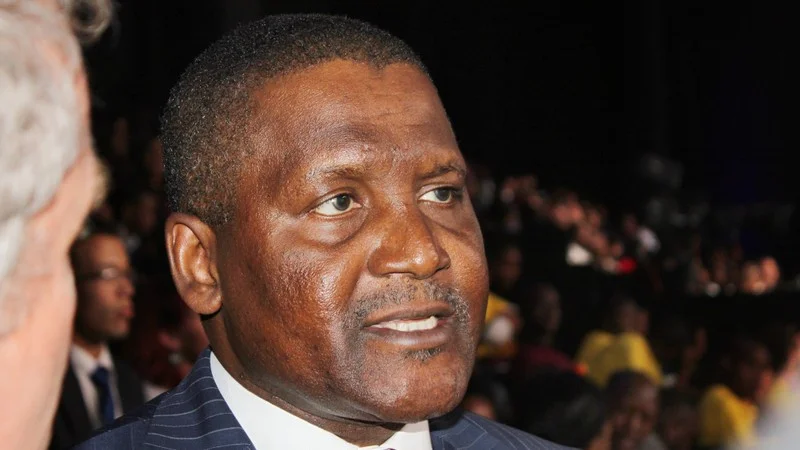In a grand event in May 2023, Aliko Dangote, Africa’s wealthiest man, unveiled his oil refinery in Nigeria, a project that has been eagerly awaited for years.
With promises of reducing petroleum prices, the refinery marks a historic turning point in the nation’s energy industry and reflects Dangote’s ambitious vision for the country’s future.
The $20.5 billion (Ksh 2.91 trillion) Dangote refinery, Africa’s largest, boasts an impressive processing capacity of 650,000 barrels per day.
Its production targets include 250,000 barrels of gasoline and 100,000 barrels of gasoline and diesel per day, a substantial output that could significantly contribute to fuel self-sufficiency and lessen the country’s reliance on petroleum imports, which amounted to $26 billion (Ksh 3.69 trillion) in 2022.

However, Dangote’s decision to employ 11,000 Indian workers for the refinery instead of providing jobs to Nigerian citizens has ignited a heated debate within the country.
The high rate of unemployment in Nigeria has led to public outrage over the choice to hire foreign workers, with many questioning the reasoning behind overlooking qualified Nigerian candidates for these positions.
The Sub-Saharan African Skills and Apprenticeship Stakeholders Network has shed light on the matter, revealing the reason behind the decision. According to the organization, the neglect of Nigerian youth for these positions comes from perceived skill gaps.
It claims that young people in Nigeria lack the necessary abilities required for the tasks at the refinery. As a solution, the Network advocates for the creation of a national skills qualification framework in each African nation to enhance labor mobility across the continent and bridge these skill gaps.
Read Also: African billionaires should invest more in the continent: Dr Mandla Lamba advises
The debate over hiring practices raises questions about the balance between addressing unemployment challenges in Nigeria and ensuring that the workforce at the Dangote refinery possesses the necessary expertise to run the massive facility efficiently.
Critics argue that while the pursuit of skilled workers is essential, prioritizing local employment opportunities is equally important to empower the nation’s workforce and promote knowledge transfer within the country.
Amidst the controversy, the regional organization’s Secretary-General, Ousman Sillah, signed a statement proposing the creation of the national skills qualification framework.
The statement, made public on Wednesday, outlines the importance of fostering a skilled workforce and promoting labor mobility across African nations to meet the demands of complex industries such as the energy sector.
As the Dangote refinery gears up for full-scale operations, Nigerians eagerly await the transformation it will bring to the nation’s energy landscape and economy. The project’s potential to strengthen fuel self-sufficiency and stimulate economic growth remains undeniable.
Subscribe to Switch TV for more content.
Nevertheless, the hiring controversy serves as a reminder of the critical need to strike a balance between addressing skill gaps and ensuring equitable employment opportunities for the nation’s skilled workforce.
















